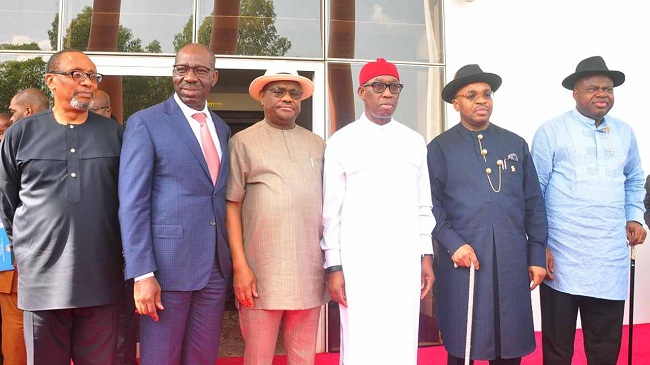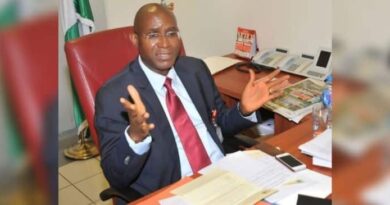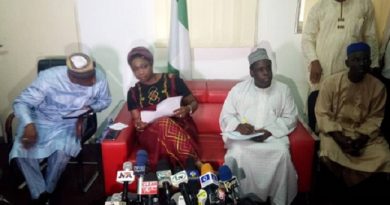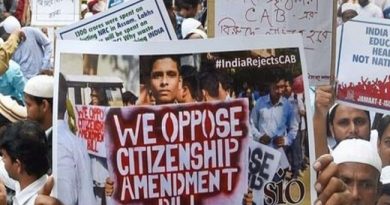South-South Governors Set To Float Regional Security Outfit
The South-South Governors Forum yesterday resolved to set up a regional security outfit and revive the BRACE Commission to tackle developmental issues.
Delta State Governor Ifeanyi Okowa who is the forum’s chairman said that he and his colleagues who met in Asaba agreed that there was a need for a regional security outfit.
At the meeting were the governors of Edo, Bayelsa, Rivers and Akwa Ibom states. They mandated the BRACE Commission to work out details of the security outfit.
While addressing State House correspondents after the stormy meeting that lasted for close to three hours, Okowa said that they had also resolved to engage the presidency on the issue of the abandoned 13 percent derivation. And the percentage will, henceforth, be set aside for the oil-producing states as enshrined in the constitution, before allocations to all the states by the Federal Account Allocation Committee (FAAC).
“We have agreed to restart the BRACE Commission and ensure we provide the necessary logistics for it to function properly. The commission as established was to help us look into the issues of regional economy and the need for us to develop our region collectively, instead of working as individual states,” he further said.
He continued : “A lot has been done in terms of documentation in the past. And in the last five years, the commission has almost gone to sleep. But we have agreed we have to restart it with headquarters in Port Harcourt, Rivers State, with our next meeting coming up in May, in Port Harcourt.
“We also took other decisions concerning the issue of FAAC allocations and the need to be able to stress very importantly that in every allocation that is being done, 13 per cent derivation must first be taken out from the funds that come from the oil economy before the rest of the money is shared at FAAC. The 13 per cent is meant for oil-producing states. That has not been the situation for a very long time. We have agreed as governors to take up the matter at the appropriate levels.
Okowa added: “We have also looked at the issues of the NDDC and the need to urge Mr. President to constitute the governing board by the advisory board of the NDDC, which has a major role to play in advisory capacity, because we believe there is a lot for NDDC to do in terms of regional projects, rather than taking on small projects. This we have to work on as quickly as possible.”
The Pan Niger Delta Forum (PANDEF) lauded South-South governor’s decision to set up a regional security outfit to combat criminality.
PANDEF publicity secretary, Ken Robinson, observed that if the governors had not been proactive, the South-South geopolitical zone would have become a safe haven for criminal elements fleeing the South-West region due to pressure from that region’s security outfit, Amotekun.
Meanwhile, suspected herdsmen in the early hours of yesterday attacked the Mbanyiar community and chased away the acting district head of Mbawa in Guma Local Government Area of Benue State, Tyoor Oliver Chado, from his house.
Narrating his ordeal to reporters on phone from his hiding place, Chado said the herdsmen who were heavily armed with sophisticated weapons raped his wife and two of his in-laws and destroyed crops stored in a barn.
He told the reporters that the herdsmen had in the past week invaded the area and killed domestic animals, including goats, pigs and chickens, and taken some away.
Chado, who said the militia herdsmen numbering 11 attacked his home around 2:00 a.m., thanked God that he was able to escape alive from the attackers.
“My wife and two of my in-laws were unfortunately tortured and raped by the marauding herdsmen who also destroyed my farm crops.
“Since the incident happened, I have not seen my wife and the two in-laws, but the livestock guard who has gone to the area told me they were tortured and raped, but not killed.
“I have reported the matter to the police and sent a vehicle to go and convey my family to where I am now taking refuge,” Chado said.
According to top him, the herdsmen uprooted his cassava and used the melon and yam from his barn to feed their animals.
Chado said the herdsmen “who are settled in Uvir in Mbabai usually come from there to attack our people. When they came last week, they chased away my people at Tse-Agudu and settled there. Tse-Agudu is less than a kilometer from my house.”
When contacted, the Police Public Relations Officer, Benue State Command, Catherine Sewuese Anene, said she was yet to receive the report.
Not less than 4000 herdsmen had invaded Guma, the home local government of Governor Samuel Ortom.
Similarly, suspected Boko Haram terrorists in gun trucks have attacked Dapchi town in Yobe State, forcing most of the residents to flee into the bushes and river for safety.
Some of the residents had alerted the military before the insurgents targeted the Dapchi military post along Gashua road.
Dapchi was attacked on February 19, 2018 by Boko Haram insurgents who abducted 110 girls at the Government Girls Science and Technical College in the town, before most of them were released last year. Five of the girls died in captivity while one of them Leah Sharibu, is still being held captive for refusing to convert from Christianity to Islam.
Confirming the attack yesterday in Damaturu, a soldier attached to Dapchi military post, who preferred anonymity, said: “The terrorists have torched many houses here in this town. Many people also fled for safety into nearby bushes, shrubs and the Kumadugu-Yobe River across the road for cover.”
He said that some residents also fled to the nearby village of Jumbam, 15 kilometres south of Dapchi, and the headquarters of Bursari Local Government Area.
The soldier, in a telephone interview, also told The Guardian that the terrorists came in dozens of gun trucks, patrolling the town for several hours.
Audu Musa, a resident, said that mobile telephone lines had been disrupted, as the telecom masts along Damaturu-Gashua road were also destroyed by the terrorists.
According to him, the destruction of the communication facilities was to prevent communities in the Damaturu/Gashua axis from alerting troops and other security agencies.
Phone calls to Dapchi have not been going through since the reports of Boko Haram fighters’ attack on the town.
“They have been complaining about the movement of the terrorists whom
they said were going about sometimes in the evening or early in the morning.”
Commuters plying the roads in the northern part of Yobe State, had to abandon the 100-kilometre Dapchi/Damaturu road over incessant attacks and killings.
The commuters, according to him, now ply the Gashua/Jakusko/Potiskum road to crisscross six council areas before reaching Damaturu, the state capital.
Meanwhile, six governors in the Northeast zone are meeting in Gombe State over insecurity, infrastructure and the economy of the region. The Boko Haram-affected states are Adamawa, Gombe, Bauchi, Taraba, Yobe and Borno.
The Senior Special Assistant on Media and Publicity to Gombe governor, Ismaila Misilli, in a statement yesterday in Maiduguri said: “The meeting, first of its kind, will be hosted by Gombe State Governor Muhammadu Yahaya. The governors’ meeting will commence this afternoon.”
According to him, the governors will receive a presentation from the North East Development Commission (NEDC) on exploring the potential of the agency for infrastructure and human capital development in the region.
“The one-day meeting is expected to set the stage for regular engagement and consultation among governors in the region.”
He said that at the end of the meeting, a communique would be issued by governors before departing to their respective states.
“The communique will outline major areas of common interest on security, infrastructural facilities and various sectors of the region’s economy.”




